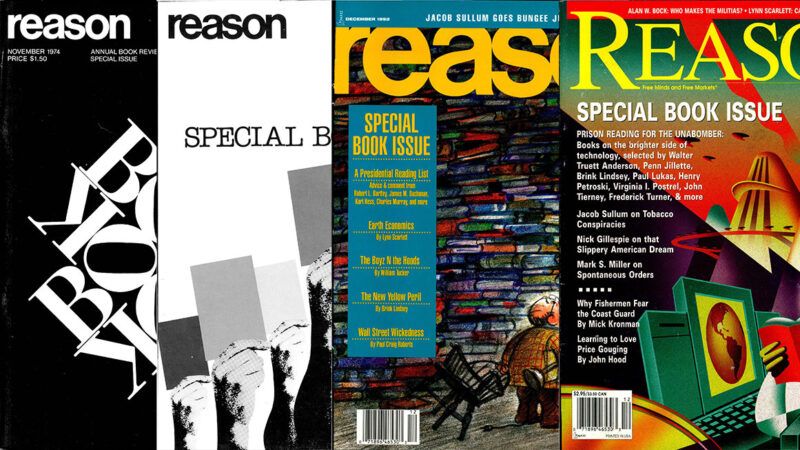Archives: August/September 2022
Excerpts from Reason's vaults

26 years ago
December 1996
"You can't understand technology without understanding how people think about technology, and, of course, you need to know the bad ideas as well as the good. That's why I want to insert a recommendation of just one influentially bad book, Thorstein Veblen's The Engineers and the Price System (1921). Veblen ably advocates a leading myth of the machine age: the idea that material technology 'advances' because of people's collective efforts, only to be manipulated and hindered by capitalists for the sake of their private profits. This idea represents a profound misapprehension of the ways in which material technology is affected by investment, market prices, and property rights. Veblen recommended that capitalists be replaced by a 'Soviet of technicians' that could 'take care of the material welfare of the underlying population'—a proposal that is either chilling or comic, depending on the way you want to take it, but that is very much in the 20th-century spirit."
Stephen Cox
"Art and Artifacts"
30 years ago
December 1992
"To put it simply, [in Islands in the Street: Gangs and American Urban Society, author Martin Sanchez] Jankowski finds it much more fruitful to think of gangs in the context of politics than in the context of crime. Gangs carry on a very taut, intense dance with their communities. Sometimes they are resented for the drugs and violence they bring. But just as often, they are looked upon as neighborhood heroes, particularly when they drive out some alien force, which they often do….Once formed, however, gangs are very careful to assess their place in the community. In particular, they are cautious not to commit petty crimes—robbery, burglary, auto theft—among the people they know. Instead, they judiciously export their crimes. Within their own neighborhoods, they specialize in services of a strong-arm variety. Gangs will torch buildings for landlords, carry out contracts against undesirables, offer 'protection' to storeowners, and run small gambling rackets (when not yet into dope dealing)."
William Tucker
"Hangin' With the Homeboys"
46 years ago
November 1976
"After a decade during which liberals and the news media closed their eyes to soaring crime rates, crime finally surfaced in the seventies as a live issue. Unfortunately, the response, both in rhetoric and in government programs, generally bore little relation to the actual problem. The virtue of [James Q.] Wilson's book [Thinking About Crime], by contrast, is its thorough grounding in reality [which] forces us to face up to some rather unpleasant truths about what is really going on.
Such as? The fact that there is really very little the police can do about the level of crime; in fact, experiments in which the amount of patrol was markedly altered showed either no change in crime rates or only short-lived changes. The fact that only a few percent of all crimes ever result in an arrest, and only a few percent of those arrested ever serve time in jail or prison. The fact that the court system serves principally to determine what should be done with the criminal in its custody—not to determine guilt or innocence. The fact that most crime is committed by many-time repeaters who are wise to the way the system works and are quite unlikely to be rehabilitatable. The fact that few if any rehabilitation programs work (and some are actually counterproductive)."
Robert Poole
"Thinking About Crime"
48 years ago
November 1974
"If you've never been audited, you obviously aren't making any political waves!
This proposition is illustrated by Hank Hohenstein in the best book to date on the subject of taxes, The IRS Conspiracy. This new book shows how the political 'bully-boys,' with the aid of IRS Special Agents and Auditors, have fine-tuned the machinery of coercion to produce fear and quiet the wave-makers. And if you say 'it can't happen here', you've been asleep too long, because it is happening here."
Karl Bray
"A Conspiracy of Ideas"
